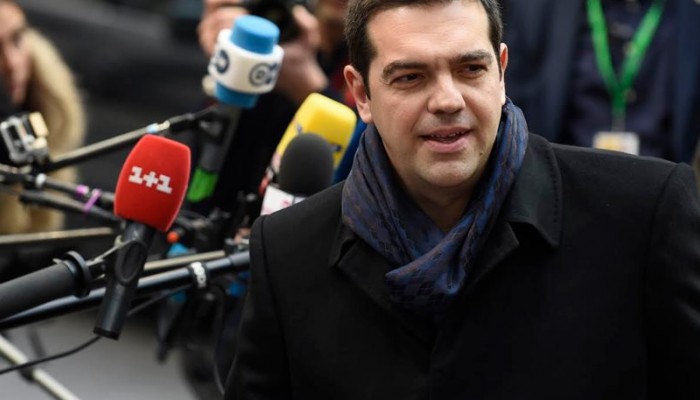THE ELECTION victory of Greece’s Syriza party in January thrilled left-wing populists across Europe — but elicited a more jaded response in other quarters. Surely, the conventional wisdom said, Syriza would abandon its unequivocal opposition to the fiscal austerity Greece’s creditors prescribe in return for funding. Surely, the responsibilities of office would trump the demagoguery of seeking it and would induce new Prime Minister Alexis Tsipras to compromise with the European Union, European Central Bank and International Monetary Fund — so as to avoid a catastrophic shut-off of bailout funds and a possible Greek exit from the European common currency.
Three months later, that conventional wisdom no longer looks so wise. Greek Finance Minister Yanis Varoufakis has spent his time provocatively jetting from one world capital to the next, demanding World War II reparations from Germany and explaining why Greece’s creditors, not Greece, need to change. He has even gone to Moscow in search of a sympathetic hearing from the Orthodox Balkan country’s traditional Russian allies. The Putin regime did, indeed, provide warm words. No cash, though.
In that respect, at least, Moscow wasn’t that much different from the IMF, the United States, Britain and Germany, whose leaders let it be known during the just-completed IMF spring meetings in Washington that Greece must accept further economic reforms before they’ll discuss more access to their financial resources. Notably, the Greeks’ next payment to the fund, $763 million, is due in early May, which means the U.S. taxpayer, as IMF underwriter, is indirectly at risk.
A Greek default is now imaginable; Athens is so hard up for cash that it has just requisitioned local government funds, so as to pay the central government’s wage and pension obligations. We don’t blame Syriza, or the people who voted for it, for wishing that they could end the country’s grinding economic crisis. Yet the creditors’ united front opposing the Syriza government’s demands is nevertheless necessary. It isn’t reasonable to expect European or American politicians to put their constituents’ hard-earned money at risk unless Greece puts forward a convincing and specific plan for spending the funds. That plan should detail necessary points of relief from the harshest cuts, as well as pro-growth structural changes. Without such reform, Syriza is offering only irresponsible populism, which Europe’s leaders want to show does not pay, lest Syriza-like movements (of the far left and far right) gain in larger, more strategic countries such as Spain, Italy and France.
Greece’s leaders seem not to grasp how the debt crisis has changed in five years. Their creditors are no longer banks and hedge funds but governments and multilateral institutions — i.e., taxpayer-supported institutions that bailed out the private sector, in hopes of stabilizing the European economy and rescuing its common currency. The issues are now as much political as financial or economic. Mr. Tsipras and Mr. Varoufakis like to talk about their responsibilities to the voters who elected them, but the men and women across the table from them have similar obligations. The Greek side should behave accordingly.



















